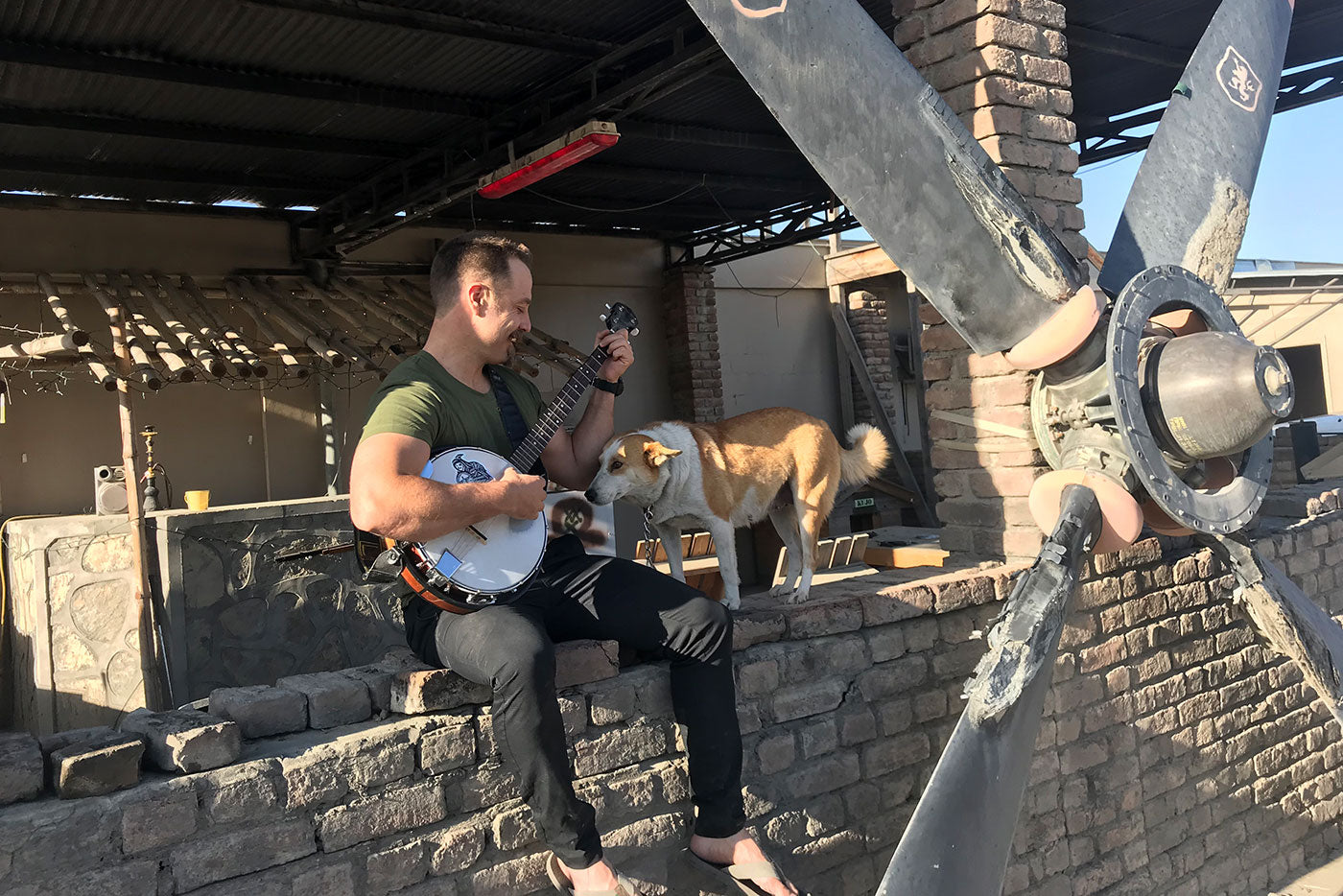When it comes to understanding the ins and outs of technical gear, Porter knows best. A revered Special Ops soldier, Porter (assumed name) is cross-trained in various specialties, from shooting to performing life-saving surgeries. Which got us thinking: how does Walter Sky compare to the typical military kit? We gave Porter some apparel to test out in an undisclosed location in the Middle East and, to sum it up, our gear just so happens to hold up in harsh Army conditions.
What was your biggest takeaway from the WS-T01 tee and WS-B02 joggers?
WS-B02 Joggers: My biggest takeaway was how versatile they were. I could wear them around our team house while relaxing between missions, but then immediately wear the same pant for an outdoor workout or at the shooting range. They kept my laundry load down because I didn't have to change my pants three times in one day.
WS-T01 Tee: My biggest takeaway was the comfort and durability. I wore this tee many times, for extended periods of time under my kit. For the amount of time I wore the shirt, I was impressed by the way it washed while maintaining its form-fitting style.
What did you do while wearing the gear?
I wore the shirt and socks for no less than 40 missions that tested us mentally and physically—and most of which extended well past 24 hours. It was always nice to come back to our temporary home and throw on my Walter Sky joggers.
How does Walter Sky apparel compare to the typical Army uniform? Any similarities?
The typical army uniform isn't known for its comfort and style. As a soldier, you learn to appreciate a good pair of socks. The Walter Sky Hybrid Adventure Socks were much better quality than the Army ones. I normally have to throw away my socks before returning back from deployment, and between the smell and the holes, they aren't worth keeping. My Walter Sky socks continue to impress me with the quality and durability of the wool, but the aesthetic style—when that’s all you have for individuality in the Army—made them keepers.

What can you tell us about your role as a Special Ops Solider? How does it differ from other Army roles and specialties?
Everyone in Special Ops' primary job is a shooter; however, we also are trained or cross-trained in different specialties. That being said, my job as a medic has its own list of challenges. I am trained to perform life-saving surgeries or interventions in extreme conditions—whether that be pitch black in the dirt or riding in a helicopter. Then factor in taking on enemy fire or returning enemy fire and you can see the amount of pressure one can be under.
What is the most rewarding aspect of being in Special Ops?
The job certainly has its high and lows. The most rewarding is the adventure of it all.
What’s the most challenging?
The most physically challenging part of the job is definitely the foot travel. We would travel long distances in harsh conditions, carrying heavy packs, with little to no sleep for days. Quite honestly, the hardest part emotionally was being away from my family and missing the small things like soccer practice or my daughter's part in the school play.
How does what you’re wearing impact your job?
For me, when you're in an austere, unforgiving environment and don't have the luxury of changing your clothes, comfort and durability are everything. Walter Sky checked both those boxes while adding the bonus of them looking good as well.

What was your favorite piece of gear?
For me, the money-makers are the socks. In my line of work, dudes spend a lot of money on a pair of expensive quality socks, and rightly so. It is not uncommon for someone to buy $200 worth of high end socks before they go through Ranger School because they know how imperative foot care is. I found myself reaching for my Walter Sky socks over my other socks because I liked them even more.
